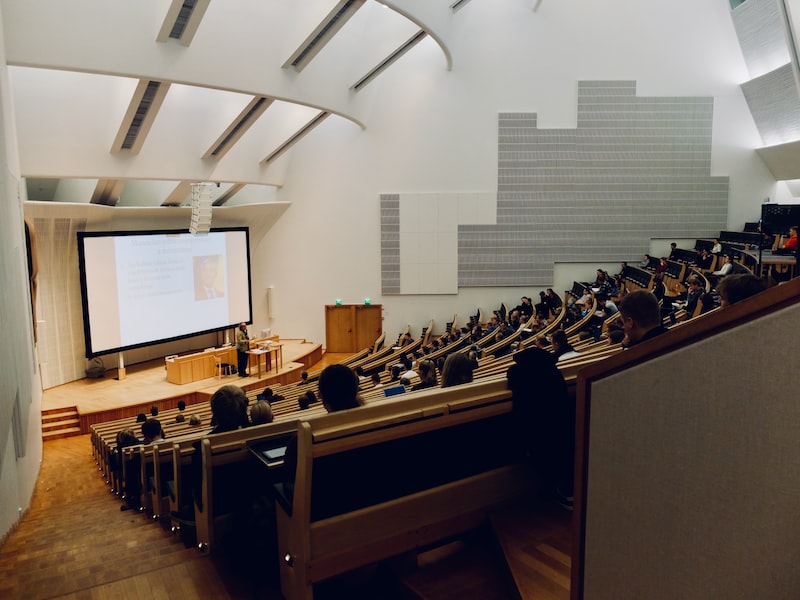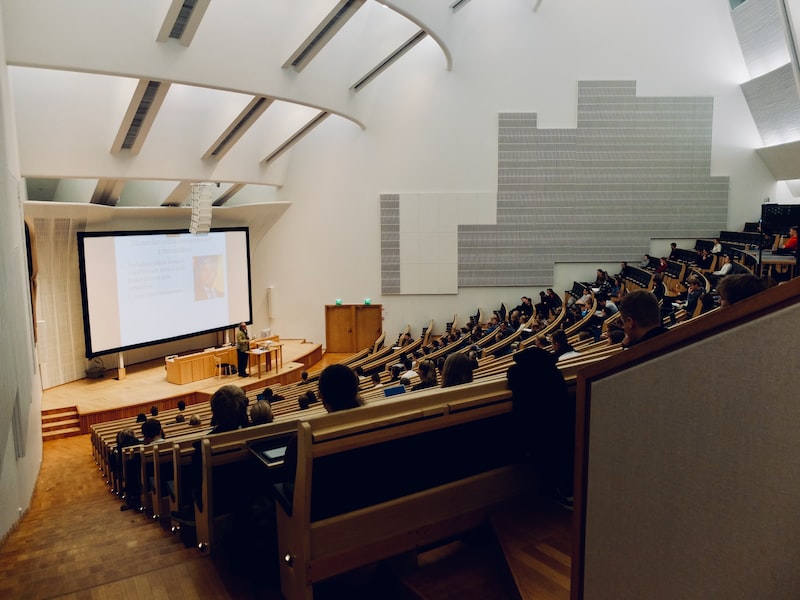Have you ever wondered about the educational legacy left by ancient civilizations? Ancient universities were not only centers of learning but also catalysts for societal progress. These remarkable institutions played a pivotal role in shaping history, leaving an indelible mark on the world.
Ancient universities served as beacons of knowledge in their respective eras. During a time when access to education was limited, these institutions emerged as intellectual hubs, attracting scholars and students from far and wide. The pursuit of knowledge was highly valued, and these universities became sanctuaries for seekers of wisdom.
One of the most renowned ancient universities was the University of Al Quaraouiyine in Fez, Morocco. Founded in 859 CE, it is recognized by UNESCO as the oldest continually operating degree-granting university in the world. Imagine the rich tapestry of knowledge woven within its walls over centuries, as scholars gathered to study a broad range of disciplines.
These ancient universities were not merely academic entities; they fostered innovation and nurtured intellectual freedom. Scholars engaged in groundbreaking research, pushing the boundaries of knowledge in fields such as mathematics, medicine, astronomy, and philosophy. The teachings and discoveries made within these institutions laid the groundwork for future advancements that still impact our lives today.
The Ancient Library of Alexandria, located in Egypt, stands as a testament to the immense cultural and intellectual contributions of ancient universities. Housing countless scrolls and manuscripts, it attracted scholars from diverse backgrounds, creating an environment conducive to cross-cultural exchange. This vibrant center of learning facilitated the translation and preservation of invaluable texts, ensuring their survival through the ages.
Furthermore, ancient universities often acted as custodians of cultural heritage. They were repositories of historical, philosophical, and scientific knowledge, safeguarding the wisdom of past civilizations. Through their dedication to preserving and transmitting knowledge, these institutions played a critical role in shaping the cultural landscape of their respective societies.

In conclusion, ancient universities forged a path for education and intellectual pursuits that have endured for centuries. Their historical significance lies not only in the knowledge they imparted but also in the impact they had on society as a whole. By nurturing curiosity, fostering innovation, and preserving cultural heritage, these venerable institutions continue to inspire us to seek knowledge and push the boundaries of human understanding.
Notable Scholars and Thinkers Associated with Ancient Universities
When we delve into the rich history of ancient universities, we come across a plethora of notable scholars and thinkers whose contributions have shaped our understanding of the world. These individuals were not only educators but also pioneers in their respective fields, leaving an indelible mark on academia. Let’s explore some of these brilliant minds who graced the ancient halls of learning.
One such luminary is Aristotle, a prominent Greek philosopher and student of Plato. Aristotle’s profound insights encompassed a wide range of disciplines, including philosophy, biology, and physics. His teachings at the Lyceum in Athens influenced generations of scholars and laid the foundation for Western thought.
Moving eastward, we encounter the renowned scholar Al-Farabi, often referred to as the “Second Teacher” (after Aristotle). This Persian polymath left an enduring impact on Islamic philosophy and political science. His works explored themes of ethics, logic, and social harmony, serving as a bridge between Hellenistic philosophy and Islamic thought.
In the realm of mathematics, the name Euclid shines brightly. Known as the “Father of Geometry,” Euclid was associated with the Library of Alexandria, a hub of scholarship in ancient Egypt. His magnum opus, “Elements,” became the definitive textbook on geometry for centuries, showcasing his logical rigor and systematic approach to mathematical proofs.
No discussion of ancient scholars would be complete without mentioning Confucius, the revered Chinese philosopher and educator. Confucius emphasized ethical conduct, social harmony, and the importance of education. His teachings, compiled in the Analects, continue to shape East Asian culture and philosophy to this day.
These are just a few snapshots from the vast gallery of scholars and thinkers associated with ancient universities. Their intellectual prowess, curiosity, and dedication to knowledge paved the way for future generations. As we reflect upon their contributions, we are reminded of the enduring power of education and the remarkable individuals who have guided humanity’s quest for understanding.
Influence on the Development of Knowledge and Education
Have you ever wondered about the profound influence of knowledge and education on our lives? The power they hold in shaping individuals, societies, and even the world as a whole is truly remarkable. Let’s delve into this fascinating topic and explore the impact of knowledge and education on our development.

Knowledge acts as a beacon, illuminating our path towards growth and progress. It empowers us to understand the world around us, unravel its mysteries, and make informed decisions. From ancient times to the present day, knowledge has been the driving force behind innovation and advancements in various fields.
Education serves as the bridge that connects individuals with knowledge. It provides a structured environment where we can acquire knowledge, develop skills, and broaden our perspectives. Through education, we gain not only factual information but also critical thinking abilities that enable us to analyze complex problems and find creative solutions.
Moreover, the influence of knowledge and education extends beyond personal development. They are vital pillars of societal progress. Educated individuals contribute to the betterment of their communities by applying their knowledge and skills to solve social issues, promote equality, and foster economic growth.
In today’s digital era, access to knowledge and education has become more democratized than ever before. The internet has revolutionized the way we learn, breaking down barriers of time and location. Online courses, educational platforms, and open-access resources have made learning accessible to people from all walks of life, transcending geographical boundaries.
The continuous development of knowledge and education also fuels scientific discoveries and technological breakthroughs. As new knowledge is generated, it opens doors to innovative ideas and advancements that shape our future. From medical breakthroughs to space exploration, these developments have the potential to redefine human existence.
In conclusion, the influence of knowledge and education on our development cannot be underestimated. They empower individuals, strengthen societies, and propel humanity forward. As we continue to seek knowledge and embrace education, we pave the way for a brighter and more enlightened future. So let us embark on this journey of learning, for the pursuit of knowledge is a lifelong endeavor that enriches our lives and shapes our destinies.
Impact on Cultural, Scientific, and Intellectual Traditions
Have you ever wondered about the profound impact of cultural, scientific, and intellectual traditions on society? These rich and diverse traditions shape our world in ways we may not even realize. From the arts to scientific discoveries, and from philosophical ideas to technological advancements, these traditions have left an indelible mark on humanity. In this article, we will explore the fascinating details of how cultural, scientific, and intellectual traditions have influenced and transformed our lives.
Cultural traditions encompass a wide range of practices, beliefs, values, and customs that are passed down from generation to generation. They provide us with a sense of identity and belonging, shaping our perspectives and influencing our behavior. Whether it’s through art, music, literature, or traditional rituals, cultural traditions serve as a powerful medium for expressing our shared experiences and bridging gaps between different communities. They foster understanding, promote diversity, and celebrate the uniqueness of various cultures around the world.
Scientific traditions, on the other hand, are driven by curiosity, exploration, and the desire to understand the natural world. Through centuries of observation, experimentation, and analysis, scientists have made remarkable discoveries that have revolutionized our understanding of the universe. Scientific traditions have given birth to groundbreaking theories, inventions, and technologies that have shaped every aspect of our lives. From medical advancements that have extended our lifespan to space exploration that has expanded our horizons, science has propelled us into the future.
Intellectual traditions involve the pursuit of knowledge, wisdom, and critical thinking. Philosophers, thinkers, and scholars throughout history have explored fundamental questions about existence, morality, and the nature of reality. Their ideas and insights have paved the way for social progress, political ideologies, and ethical frameworks. Intellectual traditions challenge our assumptions, encourage open dialogue, and inspire new perspectives. They fuel innovation, foster intellectual growth, and empower individuals to question the status quo.
In conclusion, the impact of cultural, scientific, and intellectual traditions cannot be overstated. These traditions shape our values, inform our choices, and influence the trajectory of society. They provide us with a rich tapestry of ideas, inspiration, and knowledge that enriches our lives and connects us to our shared humanity. So next time you marvel at a timeless piece of art, benefit from a life-saving medical treatment, or engage in a thought-provoking discussion, remember the profound impact of these traditions that have shaped our world.
Role in Preserving and Transmitting Ancient Texts and Knowledge
The preservation and transmission of ancient texts and knowledge play a crucial role in our understanding of history, culture, and the evolution of human civilization. These texts serve as windows into the past, providing invaluable insights into the thoughts, beliefs, and achievements of our ancestors. In this article, we will explore the significance of preserving and transmitting ancient texts, shedding light on their enduring impact.
Imagine stepping into a time machine that takes you centuries back to ancient civilizations. As you traverse those ancient corridors of time, what would you seek? Would it be the wisdom of ancient philosophers, the artistic brilliance of Renaissance masters, or the scientific breakthroughs of visionaries who paved the way for modern discoveries?
Ancient texts are the guardians of such treasures, encapsulating the collective knowledge, experiences, and aspirations of bygone eras. They transport us to different epochs, allowing us to witness the world through the eyes of those who came before us. Without these texts, our understanding of history would be incomplete, akin to trying to solve a puzzle with missing pieces.
Preserving these fragile manuscripts is akin to safeguarding a delicate thread connecting us to our roots. It requires meticulous care, employing advanced techniques to prevent deterioration and loss. From climate-controlled environments to digital archiving, experts employ various methods to ensure the survival of these precious artifacts.
The transmission of ancient texts is equally vital, as it enables the dissemination of knowledge across time and space. Just as our ancestors passed down their wisdom to subsequent generations, we have a responsibility to carry forward their legacy. Through translations, academic research, and educational programs, we bridge the gap between the past and the present, making ancient knowledge accessible to a wider audience.
Moreover, ancient texts often contain universal truths and timeless lessons that remain relevant today. They provide a rich tapestry of ideas, philosophies, and moral values that can guide us in navigating the complexities of the modern world. By studying and engaging with these texts, we gain a deeper appreciation for the diversity of human thought and develop a broader perspective on our own existence.
In conclusion, the role of preserving and transmitting ancient texts and knowledge cannot be overstated. They serve as invaluable sources of information, inspiration, and cultural heritage. By safeguarding these texts, we ensure that future generations can explore the depths of our collective past and draw upon its wisdom to shape a brighter future. So let us cherish and celebrate the beauty of these ancient manuscripts, for they are not mere words on a page, but windows to our shared human legacy.
Contributions to the Advancement of Philosophy and Logic
Introduction:
Have you ever wondered how philosophy and logic have shaped our understanding of the world? These two disciplines have played a crucial role in human history, contributing immensely to the development of knowledge and critical thinking. In this article, we will explore the remarkable contributions made by philosophers and logicians throughout the ages, paving the way for intellectual progress.
Unveiling New Perspectives:
Philosophers have been at the forefront of unraveling the mysteries of existence. From ancient thinkers like Socrates and Plato to modern philosophers like Immanuel Kant and Friedrich Nietzsche, each has offered unique perspectives on life’s fundamental questions. Through their inquiries into ethics, metaphysics, and epistemology, they have challenged prevailing beliefs, stimulating intellectual growth and fostering a deeper understanding of ourselves and the world around us.
Logic as a Cornerstone:
Logic, often referred to as the “science of reasoning,” is another key discipline that has greatly contributed to human intellect. Beginning with Aristotle’s groundbreaking work on deductive reasoning, logicians have developed intricate systems of formal logic, enabling us to analyze and assess arguments with precision. This structured approach has proven invaluable in various fields, including mathematics, computer science, and law, providing a solid foundation for rational discourse and decision-making.
Revolutionizing Thought:
The contributions of philosophy and logic extend beyond theoretical frameworks; they have influenced numerous practical aspects of our lives. For instance, philosophical concepts like utilitarianism and existentialism have shaped ethical theories guiding our moral choices. Logical principles underpin the design and function of computer algorithms, ensuring efficient problem-solving and technological advancements.
Moreover, advancements in philosophy and logic have fostered interdisciplinary collaboration. By integrating ideas from different fields, such as cognitive science and linguistics, philosophers and logicians have contributed to advancements in artificial intelligence and natural language processing, pushing the boundaries of innovation.
Conclusion:
In conclusion, the contributions of philosophy and logic cannot be overstated. From ancient civilizations to the present day, philosophers and logicians have enriched our intellectual landscape, challenging conventional wisdom and pushing us toward new frontiers of knowledge. Their insights have helped shape our understanding of reality, morality, and reasoning, while also influencing practical applications in various domains. As we continue to delve deeper into these disciplines, embracing the amazement of their contributions, we open doors to even greater advancements that will undoubtedly shape the future of human thought.
Legacy and Enduring Importance of Ancient Universities
Have you ever wondered how knowledge has been passed down through the ages? Step back in time with me for a moment as we explore the remarkable legacy and enduring importance of ancient universities. These venerable institutions have left an indelible mark on the world, shaping our understanding of various disciplines and paving the way for modern education.
Ancient universities were more than just centers of learning; they were vibrant hubs of intellectual exchange, nurturing the minds of scholars and fostering innovation. Take, for example, the University of Bologna, founded in 1088, making it the world’s oldest university. Its rich history and longstanding reputation as a center for legal studies have influenced countless generations of lawyers and jurists.
These esteemed seats of learning were not confined to Europe alone. In the East, Nalanda University in India stood as a beacon of knowledge from the 5th to the 12th century. Renowned for its vast library and prestigious faculty, Nalanda attracted scholars from across the world, fostering dialogue and cultural exchange.
The impact of ancient universities extends beyond academia. Their influence can be seen in the architectural marvels that still stand today, such as the University of Oxford’s grand buildings or the ethereal beauty of Al-Qarawiyyin University in Morocco, established in 859 CE and recognized by UNESCO as the world’s oldest continuously operating degree-granting university.
These historic institutions not only preserved knowledge but also pushed the boundaries of human understanding. They were catalysts for groundbreaking discoveries, scientific advancements, and philosophical debates that shaped the course of human civilization. Think of Isaac Newton’s time at the University of Cambridge or Albert Einstein’s formative years at the Swiss Federal Institute of Technology (ETH Zurich). These luminaries owe much of their genius to the intellectual milieu of their alma maters.
In conclusion, the legacy and enduring importance of ancient universities are undeniable. They have nurtured brilliant minds, preserved knowledge, and served as cradles of innovation for centuries. As we admire their magnificent architecture and delve into the annals of their history, let us not forget the profound impact these institutions have had on our world. The wisdom they imparted continues to shape our present and future, standing as testament to the power of education and the human quest for knowledge.












Leave a Reply